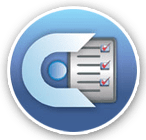Are you planning to implement an online examination system for your institute or university? Have you thought about any security aspects while implementing technology for the online examination process? Security is one of the key aspects when implementing an online examination system. If you have not taken into consideration key security measures, your online exam implementation might fail. So today, I am going to discuss five techniques to avoid cheating during the online examination process. Stay tuned.
1. Secure Browser
The first key technique to avoid cheating during the online examination process is using a secure browser. A secure browser prevents users from opening any other window during the online exam. For example, consider a candidate appearing for the exam. If they try to open another window, like google.com, during the examination, the system will display an error message. This error message suspends the online exam activity for the user. As an administrator, you can also view logs of candidates who attempted to open other windows.
2. Remote Proctoring
Remote proctoring is an advanced technique that helps capture the activity of users during the online examination process. Imagine a candidate sitting at home or the office trying to appear for the online exam. Remote proctoring uses the system’s webcam to monitor the candidate's activity. The webcam can also capture photographs of the candidate at regular intervals, such as every 15 seconds, 30 seconds, or 1 minute. The system can verify whether the same candidate is appearing for the exam as per the record on their hall ticket. This technology helps prevent cheating, as well as authenticate remote candidates.
Additionally, advanced technologies like image processing and AI can identify if the candidate is receiving help from someone nearby or using unauthorized devices such as mobile phones or notebooks. The system stores a complete audit record of the video streaming activity, so after the exam, administrators can review the candidate’s behavior for verification.
3. Data Encryption
Data encryption plays a crucial role in securing sensitive information transmitted between the client and server. Since online exams often involve high-stakes data, protecting this information from theft or cyberattacks is critical. By using advanced encryption techniques like RSA algorithms, you can ensure that all data exchanges between the client and server are secure. This not only secures the transmission of data but also helps prevent cheating during the Online Examination Process.
4. Audit Logging
Audit logging involves tracking key events during the online exam, such as candidate login/logout, geotagging, question navigation, and the time spent on each question. By logging these key events, you can identify any irregularities or signs of cheating. For example, if a candidate spends an unusually long time on one question or skips multiple questions without answering, audit logs can help detect suspicious activity. After the exam, administrators can use these logs to identify fraud or confirm that the exam was conducted securely.
5. Question Timers
Setting a timer for each question is another effective way to prevent cheating. By allocating a specific time for each question, say 30 seconds or 45 seconds, you limit the chances of candidates seeking help from external sources such as other candidates or their mobile phones. Once the time expires, the system automatically moves on to the next question. You can even define timers for subtopics or sections, making it even more difficult for candidates to cheat. The timer also ensures that candidates remain focused on the exam and don’t have the opportunity to use unauthorized means.
Conclusion
To conclude, while technology plays a key role in simplifying the examination process, the security aspect is critical if you want to prevent cheating or malpractices during online exams. We have worked with many high-stakes government entities, multinational companies (MNCs), and educational institutions to conduct high-stakes certification exams, university entrance exams, and college-level exams, including scholarship exams.
Would you like to have a demo of our Secure Online Examination System? It can certainly help you prevent cheating and enhance the security of your exams. Connect with us today for a demo of our solution.







